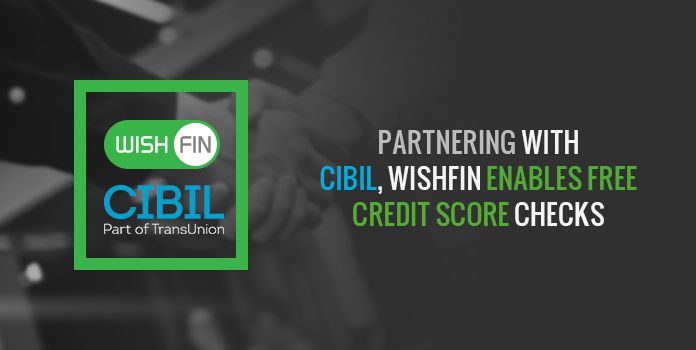A credit score, often known as a CIBIL, is a crucial aspect in determining your creditworthiness. When you apply for a mortgage, a personal loan, or another credit product, lenders look at your Credit score. A personal loan is an unsecured, short- or medium-term loan with a short or medium-term payback period. It can be used for a variety of unexpected expenses, such as travels and wedding expenses. To obtain one, you need to have a stable credit score of at least 700. Some lenders also demand a CIBIL score of 750. Read below to know more.
What is the CIBIL minimum score needed for a personal loan?
When reviewing a personal loan application, lenders analyse a number of factors, including your current salary, age, outstanding credit obligations, work type (e.g. salaried or self-employed), and so on. Your CIBIL Score is one of these elements to look into. If you’re looking for a personal loan, it’s a good idea to keep your CIBIL score high because it’s the most commonly requested credit score.
A certain CIBIL Score is not required to be approved for a personal loan. A CIBIL score of 750 or higher, on the other hand, is excellent and can assist you in obtaining a variety of loan alternatives. As a result, having a good credit score can help you get a bigger loan with lower interest rates and a shorter repayment duration.
A CIBIL score might range anywhere from 300 to 900. A credit score of at least 900 is excellent because it will help you receive lower interest rates on loans and credit cards. If your CIBIL score is 750 or higher, you may be eligible for a personal loan. According to CIBIL data, if a credit score exceeds 750, 80 percent of loans are granted.
Before approving your loan application, lenders must check that you have the financial means to repay the borrowed funds. Your credit score is used to calculate your default risk.
What role does credit rating play in the loan application process?
- A person’s credit score is determined by the accumulation of that person’s credit history over time. It is made up of a person’s payment history for loans and credit cards.
- If a person misses or defaults on any of these payments, it will be recorded on their credit report, lowering their credit score. As a result, the individual will be rejected personal loans (or other loans) from banks and other financial organisations, as well as credit cards.
- Even if a personal loan is granted to such a person, the interest rate will be substantially higher, and the loan amount accepted may be less than the amount requested.
- As a result, if you want to receive strong personal loans and other credit facilities, as well as credit cards, you must keep a solid credit score.
Is it feasible to receive a personal loan despite having a poor credit score?
The first thing that is evaluated when a person applies for a personal loan is their credit score. The following are the specifications for a potential personal loan depending on a person’s credit score.
Any lender considers a credit score of 300 to 599 to be out of range for obtaining a personal loan. It informs the lender of the respondent’s poor credit rating as well as the loan’s major cause. As a result, most lenders will turn down personal loan applications from those with poor credit. Such an applicant must make immediate measures to enhance his or her credit score in order to have access to loans.
A credit score between 600 and 749 is poor, but not as severe as the prior range. Many lenders may choose to disregard this score and award personal loans to applicants based on other considerations such as the applicant’s ability to repay the loan, proof of income provided on the application, loan against any security or collateral, employment history, and bank connections. Even if you are approved for a loan, the interest rate will be greater, and the loan terms may not meet your needs.
To be considered for a personal loan, you must have a credit score of 750 or above. People with such a high credit score may be able to get rapid loans from a variety of lenders.
FAQs
Q: What is a CIBIL score?
A: A CIBIL score is a three-digit numerical representation of an individual’s creditworthiness. It is calculated based on their credit history, including factors such as repayment behavior, credit utilization, credit inquiries, and credit mix.
Q: Why is the CIBIL score important for obtaining a personal loan?
A: Lenders use the CIBIL score as one of the key factors in assessing an individual’s creditworthiness and their ability to repay a loan. A higher CIBIL score indicates a lower credit risk, making it easier to secure a personal loan with favorable terms and interest rates.
Q: What is the minimum CIBIL score required for a personal loan?
A: While different lenders may have their own specific requirements, generally a CIBIL score of 700 or above is considered good for obtaining a personal loan. However, please note that meeting the minimum CIBIL score requirement does not guarantee loan approval as lenders consider other factors as well.
Q: Can I get a personal loan with a low CIBIL score?
A: It may be challenging to get a personal loan with a low CIBIL score, as it indicates a higher credit risk. Lenders may be hesitant to offer loans or may charge higher interest rates to compensate for the perceived risk. However, some lenders specialize in providing loans to individuals with lower credit scores, but the terms may not be as favorable.
Q: Apart from the CIBIL score, what other factors are considered for a personal loan?
A: Lenders consider various factors when evaluating a personal loan application, including the individual’s income, employment stability, debt-to-income ratio, existing financial obligations, and repayment history. These factors help lenders assess the borrower’s overall financial health and repayment capacity.
Q: How can I improve my CIBIL score?
A: To improve your CIBIL score, focus on maintaining a good credit history. This can be achieved by paying your bills and loan EMIs on time, keeping credit card balances low, maintaining a healthy credit mix, limiting credit inquiries, and avoiding defaults or late payments. Regularly reviewing your credit report for inaccuracies and rectifying them can also positively impact your CIBIL score.
Q: Can I check my CIBIL score for free?
A: Yes, you can check your CIBIL score for free once a year from each credit bureau in India, including TransUnion CIBIL, Equifax, Experian, and CRIF High Mark. Additionally, there are online platforms that provide free credit score checks as well.
Q: How often does the CIBIL score change?
A: Your CIBIL score is not fixed and can change over time based on your credit behavior. It is recommended to monitor your credit score regularly to stay aware of any changes and take necessary actions to maintain or improve it.
Also Read: Outsource Your HR Services to Get Reliable Support
Last Thoughts
Before applying for a personal loan, it’s critical to assess your credit situation. Your CIBIL score is significant because it reflects where you are in terms of your credit history and payment history. If your CIBIL score is low, you can work on it over time and finally should know how to improve cibil score by taking the right steps. Because a personal loan is an unsecured loan, the lender’s primary concern is the borrower’s capacity to repay the amount. Your CIBIL score determines your ability to repay debts, which is why it’s vital to keep your credit score stable. It is preferable to enhance your credit score before applying for any form of loan in order to have a smooth loan application process.

